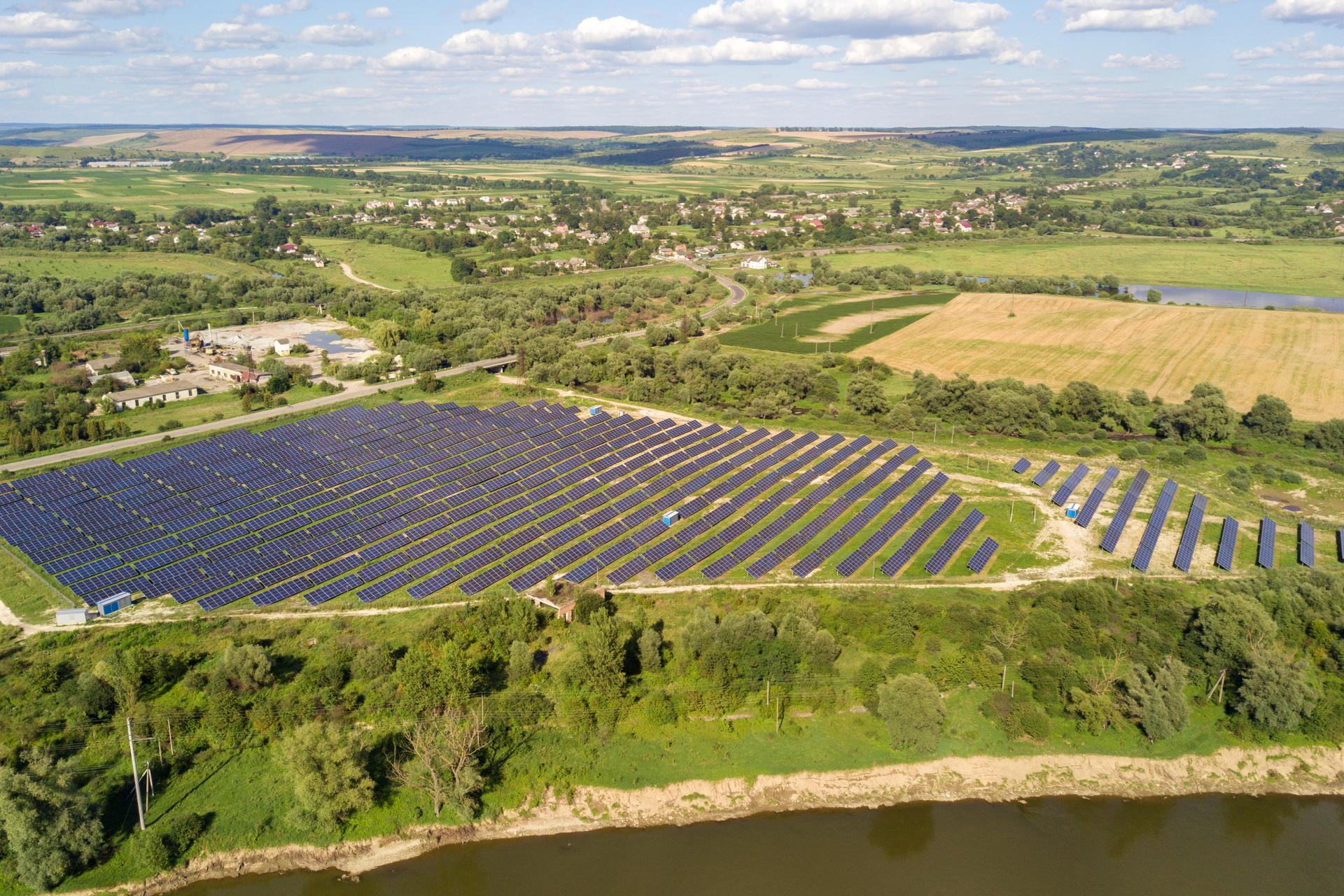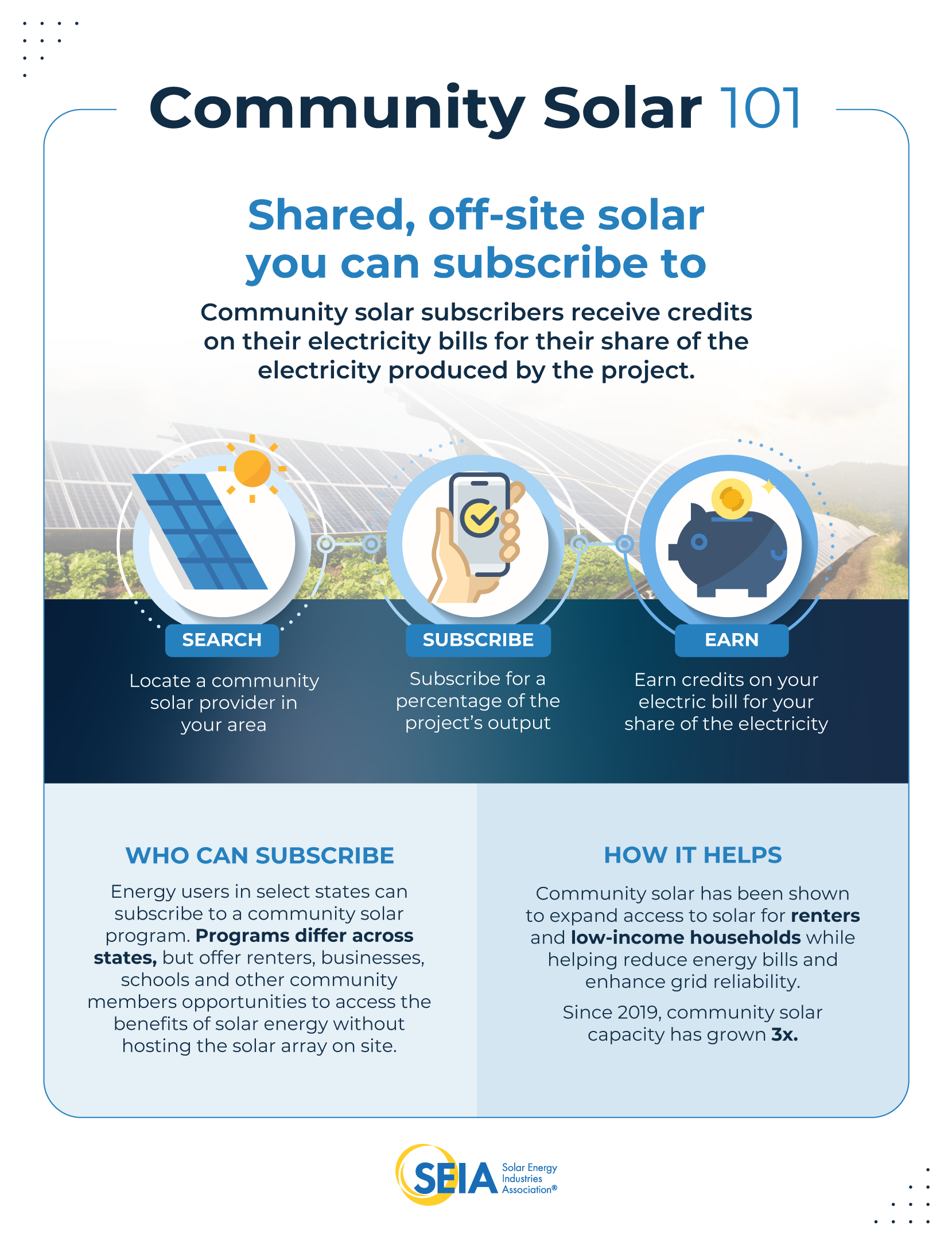No Roof, No Problem: How to Become a Solar Customer Without Installing Rooftop Solar Panels

With increasing pressure on family budgets and the U.S. electricity grid, more Americans are turning to solar to take control of their energy needs. While not everyone can put a solar array on their roof, renters, condo owners, low-to-moderate income households, and other energy users can still access the benefits of solar.
In 2023, a record 800,000 Americans added solar to their homes.
With increasing pressure on family budgets and the U.S. electricity grid, more Americans are turning to solar to take control of their energy needs. While not everyone can put a solar array on their roof, renters, condo owners, low-to-moderate income households, and other energy users can still access the benefits of solar.
To help all solar customers understand their options, the Solar Energy Industries Association (SEIA) has outlined a number of ways Americans can benefit from solar savings without putting solar on their roof.
Community Solar
Community solar is a great option for most Americans that can’t or don’t want to install solar on their property.
Community solar projects are large, off-site solar facilities that multiple households and businesses can benefit from, either by purchasing part of a solar facility or subscribing to access a portion of the project’s electricity generation. Once a project is built and connected to the grid, subscribers then receive a credit on their electricity bill for their share of the electricity the project produces.
The subscription model is an attractive option for many families because it can eliminate upfront costs and increase solar accessibility for underserved communities, especially for multifamily housing occupants, renters, and low- and moderate-income households. And because these projects are located near its customers, community solar customers are also boosting their community’s grid resilience.
These projects are typically owned and operated by a third party that works with a utility provider to deliver solar to the grid. While most subscribers are working directly with a community solar provider, in some instances, businesses and churches are beginning to share their community solar savings with nearby residents.
There are community solar projects in 43 states and the District of Columbia.

Community Choice Aggregation
Local jurisdictions and communities can also help their residents access solar.
Community choice aggregation (CCA) is a program that allows cities, counties, and municipalities to procure power from alternative generation sources while maintaining the transmission and distribution networks from their current utility.
Ratepayers are then given the opportunity to opt-in to the CCA program and select their electricity mix, allowing customers to get more of their power from clean energy sources. Because communities are pooling their purchasing power, CCA programs can often lower rates for customers while cutting energy emissions.
Currently, 10 states have authorized CCAs programs and more are considering enabling legislation.
Carports, Pergolas, Solar Shingles, and Ground-Mounted Solar
And if you are a homeowner that wants to get creative with your options, there are a number of other ways to incorporate solar without rooftop panels.
Homeowners can consider installing a solar pergola or awning in their backyard or above a patio. If homeowners are replacing their roof or building a new home, they can also consider using solar shingles. And if you have a detached garage, homeowners can consider a solar carport that provides shelter for a vehicle and/or charging station.
Landowners can also consider ground-mounted solar arrays. The land beneath a solar array has been shown to foster more biodiversity, improve crop yields, and provide shade to grazing animals, making ground-mounted solar a great option for farmers and ranchers.
Even if you can’t or don’t want to install a solar array on your roof, you can still become a solar customer. Like any major purchase, you should look into all of your options, comparison shop, read the fine print on any agreements, and read company reviews.
Check out SEIA’s resources for solar customers and decide for yourself how you want to be a part of America’s clean energy economy.

